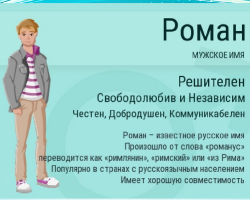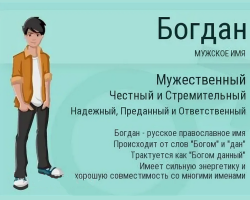Monthly after childbirth is an important hormonal process indicating a woman's health. Critical days occur immediately after the end of breastfeeding.
Content
- When do menstruation come after childbirth?
- How many menstruation last after childbirth?
- How to distinguish menstruation after childbirth from bleeding?
- The nature of menstruation after childbirth, how do menstruation differs after childbirth?
- When will meal after childbirth come during breastfeeding?
- After childbirth, plentiful menstruation, what to do?
- Causes of abundant menstruation after childbirth
- Causes of painful menstruation after childbirth
- Why are there missions after childbirth?
- Monthly after childbirth: reviews
- Video: menstruation after childbirth
When do menstruation come after childbirth?
Renewed critical days — the most important sign complete rehabilitation female organism after delivery. Costs mark, what stronger total absolutely all women recently who have become mothers excites not myself fact parish menstrual days, a possibility suddenly again get pregnant.
After all quicker total, at availability small child such hasty pregnancy not desirable, a means need to be «on the check«. Figure out in given question they will help tips doctors and complete possession information about features your his organism.

- Most female doctors and the generally accepted rule say that the complete return of menstruation should be expected almost immediately after the end of breastfeeding. Nature decided for us that while a woman has a baby on breastfeeding, she should not have children, and if she ends up, her child is quite an adult. And this is really true: ideally you need to breastfeed for up to two to three years. Having reached this age, it can be considered independent and adults
- Modern living conditions dictate their conditions. Shop shelves are filled with artificial feeding products, mothers need to return again to working hours, the first complementary foods begins at 4 months ... And women simply do not want to give breast milk to their children. Most often, feeding ends a year or even earlier - at 6 months
Breastfeeding and the beginning of menstruation - the two most important hormonal processes in the female body and interference in their course is fraught with some unpleasant consequences: a violation of the health of physiological and psychological.
How many menstruation last after childbirth?
It is important to know that the first two or three months, monthly blood discharge may not be regular. Only after a while, the cycle is completely restored. Cases of menstruation and active breastfeeding are not rare. Such an event does not always mean deviations or problems, but it is necessary to seem to the gynecologist. Only he can exclude the presence of the disease.

After a woman has successfully gave birth, she can feel some changes in her body:
- the characteristic pains during menstruation, the abdomen arising in the lower abdomen become softer or completely disappear
- blood menstrual discharge becomes more abundant or less large -scale
- monthly lasts longer or vice versa, end faster
If you finished breastfeeding, and menstruation did not come after two to three months, you should see a doctor. A similar phenomenon may well symbolize the presence of a tumor or another pregnancy.
After childbirth, menstruation restore their “stationary mode” within three months. Until this time has passed, you can observe their instability and not cyclicality: either large, then small. Doctors focus on the fact that if critical days are too large (from seven to ten days) - then this is a reason to worry and seek advice.
How to distinguish menstruation after childbirth from bleeding?
All the time of pregnancy, the fetus was tightly attached to the placenta to the wall of the uterus. The fetal nutrition occurred using blood vessels. During childbirth, the fetus breaks away from the uterus, leaving behind bleeding wounds. That is why a woman observes abundant blood discharge for the first month after delivery. The uterus is actively trying to come to normal and is regularly cleaned, throwing blood residues, placenta and clots.
Blood discharge appears immediately after the birth of the baby and accompany the woman from 10 to 20 days. If the active release of blood does not stop, you should urgently consult a doctor.
There is a definition of such blood discharge. They are called lochia.It is not difficult to distinguish lochia from menstruation, although in the early days they are similar to each other. The first days of moo is characterized by abundant red and red secretions with impurities of mucus, placenta and torn blood vessels. As healing, the blood will darken and acquire a brown shade, by the end it can become completely beige or transparent.

Monthly differ in a more brown color at the beginning and at the end of the discharge. The duration of the discharge can also tell you about their character: critical days last a week, and Lochia - from four, to eight weeks.
- The nature of these bleeding is diverse, because lochia is the consequences of childbirth, and menstruation is a purely hormonal process. Each young mother must follow the nature of the discharge
- If the alleged menstruation have impurities of yellowish or greenish mucus - this is a “restless bell” that speaks of a purulent process in the body
- The fact is that there are not rare cases when foreign fabrics remain in the uterine cavity. On their own, they could not leave the body in time and an inflammatory process, as well as tissue damage, is quite possible
The nature of menstruation after childbirth, how do menstruation differs after childbirth?
The nature of menstruation can change after childbirth and even for the better. The fact is that most women have an incorrect uterine bend. That is why it is difficult to get pregnant, and during menstruation you can sometimes experience severe and unbearable aching pains.
Childbirth leads the uterus to its usual and acceptable physiological form. That is why pain at menstruation disappears and they become easily tolerated.

After the first few months, usually menstruation acquire their usual shape and last as much as they lasted before pregnancy. Deviations can be seen only in cases where a woman takes hormonal contraceptives. The nature of the discharge in this case becomes much smaller and lasts no longer than five days.
In another case, the installation of a spiral in the uterine cavity-a popular contraceptive, characterizes menstruation, like abundant bright red discharge with impurities and clots of dark color.
When will meal after childbirth come during breastfeeding?
Breastfeeding is a hormonal process that regulates the onset of the menstrual cycle in the female body. Ideal is the appearance of the first menstrual discharge after one or two months of the end of feeding the baby. It often happens that women who do not have a too abundant influx of milk observe the appearance of menstruation immediately after a period of logs.

In any case, you need to carefully monitor your health and sensations with secretions. Notice, if the gaskets are enough for you for no more than two hours - this is an occasion to panic, since in such cases it is possible that the presence of not moo, not menstruation, but internal bleeding.
Pay attention to how for a long time, menstruation comes after completing the baby's breastfeeding. The time is considered normal in two to three months.
After childbirth, plentiful menstruation, what to do?
Each female body is purely individual and to judge in general of female predisposition is difficult. However, there is one pattern: there should not be menstruation during breastfeeding. If they came, then something with the hormonal background of your body is wrong, and if they do not come at all, you should consult a doctor.

observing the abundant menstruation, first of all, trace how large they are and how long they last. The gaskets should be enough for more than two hours, if this pattern is not present, you need to consult a doctor. Follow the nature of the discharge: what color they are, are there impurities or mucus.
The presence of mucus, pieces of foreign tissue and yellowish-green impurities suggests that your body has inflammation and purulent infection. It requires immediate medical intervention and deliverance.
Causes of abundant menstruation after childbirth
If you notice abundant menstruation after childbirth, do not rush to be scared. The fact is that the restoration of the menstrual cycle is a long process that requires patience and time. Lochia - blood discharge, may not be allocated, not two - but for two whole months! Therefore, it is not rare that women confuse menstruation with suckers.

The cause of abundant menstruation is the active cleansing of the uterus from bursting blood vessels, blood clots and capillaries, placenta remnants. The uterus tries to get rid of everything that should not be in it. Moreover, if the birth was too traumatic, it is possible that the uterine wall is badly damaged and it will heal longer than usual.
In other cases, if you observe menstruation longer than five days and all this time they are abundant, accompanied by an increase in temperature, pain, mucus release - you may have internal bleeding and then you should urgently consult a doctor.
Causes of painful menstruation after childbirth
Most often, it happens that the birth of a child brings women only positive changes. The uterus stretches and takes its normal physiological position. That is why most women have less pain in the period of menstruation.

The causes of painful menstruation after the birth of a child can be:
- hormonal disorders in the female body
- traumatic birth
- c-section
- the presence of oncology
- inflammatory diseases
- insufficient uterine cleansing after childbirth
In each individual case, when a woman feels bad after childbirth, including during menstruation, you should seek help from a doctor in time.
Why are there missions after childbirth?
Monthly the same hormonal process as breastfeeding and the birth itself. In those cases when a young mother still feeds the baby, an important hormone, which is called “prolactin”, is present in her body. As long as he is present in his normal and permissible quantity, critical days should not come. If the lactation decreases and the amount of milk in the chest decreases, the production of this hormone also declines. In such a development of events, you should wait for the soon arrival of menstruation.
Female organism in everyone case purely individual and offensive first discharge predict with accuracy on the 100%. They are come through year and even through three months after themselves childbirth. Exactly can to tell only then, what period and breast feeding — closely depends friend from friend. If a newborn not feed at all, expect the first menstruation can after one only month.
Monthly after childbirth: reviews
Tatiana:“Monthly began with me two months after giving birth. Of course, I was surprised, because I fed my daughter with milk. But I found an explanation for this in a hormonal process, because in fact there was not so much milk, which means that it was impossible to count on good nutrition. In my case: little milk - quick menstruation! "
Angelica:“After half a year of active breastfeeding, menstruation occurred. I do not know why. I fed a lot, there was milk. Maybe stress? And not regular nutrition? Monthly appeared not plentiful and completely without pain. "
Sofia:“We can say that I got an ideal picture, because the menstruation began only a month later, after I quit breastfeeding. I think most women are experiencing the same changes in their body. ”







